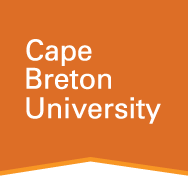Business Administration courses
Cape Breton University

- Canada
- World Rank : -
- Visit Website
Finance
Play an important role in any organization
The Bachelor of Business Administration program (BBA) prepares students for self-employment and careers in private and public enterprise, cooperatives, government service, and for graduate study. The BBA program core courses put an emphasis on a broad range of business topics while the program as a whole provides a foundation in both business and the traditional liberal arts. Students graduate with the ability to analyze a business situation, identify alternative responses and resolve business difficulties.
A core focus of the BBA program is entrepreneurialism. Students graduate with the knowledge to manage and start their own business in a field they’re passionate about. Not everyone is interested in studying business but it can be an investment in your future. Graduating with a BBA gives you the right tools to build your dreams into a well-structured venture.
Why a BBA at CBU?
Join the ranks of an organization or build a business from the ground up, secure the foundation you need to do both and more with our BBA program.
Areas of Study
Make Change
Everybody has to deal with money. Finance takes a closer look by studying the management of money for other individuals, companies and governments.
What Is The Study of Finance?
Finance is a set of concepts, principles and theories dealing with the allocation of monetary resources, risk analysis and valuation of assets. For every environment, there’s different Finance concepts and principles that need to be applied in order to reach the end goal.
The scope of Finance is broad. Finance courses at CBU explore the full spectrum, from business finance, personal finance, investments to capital market theory, financial institutions and markets, and international finance. A background or interest in Accounting and Economics is ideal for a Concentration in Finance.
Why Study Finance At CBU?
Know a business from top line to bottom line.
Possible Career Paths
Talk to an Enrolment Services Professional about how to pair a Finance degree with a post graduate program for the career you want.
Entry requirement for international students
Students must require graduation from an academic secondary school program or equivalent with an average of “C” in five, senior academic-level/university preparatory courses with English, Mathematics and four additional courses.
TOEFL
Paper-Based Test: 550
Computer-Based Test: 213
Internet-Based Test: 80
IELTS
Overall Score: 6.5
No Band Below: 6.0
| Type of university | Public |
| Undergraduate Programs | 17 |
| Postgraduate Programs | 3 |
| Diploma and Certificate Programs | 7 |
| Tuition per academic year for Undergraduate International Students | $17,809 |
| Test scores accepted | IELTS, TOEFL |
For international candidates aspiring to study at the university, it is mandatory to have an estimate of the cost of living in Canada to survive comfortably in a foreign land. Below is the estimated tuition and student fees for the Fall/Winter 2019 – 2020 presented-
| Fees | Undergraduate (CAD) | Graduate (CAD) |
|---|---|---|
| Tuition | 8,040 | 2,012 (for six credit course) |
| International differential fees | 8,040 | 1,608 |
| International medical plan | 744 | 744 |
| Fees | 985 | 128 |
| Housing | 5,910 | 5,910 |
| Meal Plan | 4,744 | 4,744 |
| Total | 28,463 | 15,146 |
Note: The graduate fee depends on the number of courses offered by the students. Thus, graduate students should expect to pay more than 400% of the above-stated fees
| Tuition Fees in Canada (1st Year Average) | BE / BTech: CA$22,600 | MBA: CA$25,375 | MS: CA$17,225 | BBA: CA$20,560 | MEng: CA$22,225 | BSc: CA$20,745 | MASc: CA$20,375 | MIM: CA$28,900 | MA: CA$12,970 | MFin: CA$32,785 | BHM: CA$20,560 | MEM: CA$17,040 |
| Average Accomodation & Food Costs in Canada | CA$8890 Per Year |
| Entrance Exams in Canada | TOEFL: 86 | IELTS: 6.5 | PTE: 60 | GRE: 309 | GMAT: 560 | SAT: 1177 |
| Work and Study in Canada | Permitted for 20 hours/week with a valid study permit. |
| Post Study Work Permit in Canada | Up to 3 Years after graduation depending on the course. |
| Cost of Student Visa in Canada | CAD 150 |
| Student Visa in Canada | A Canada student permit is a document issued by IRCC (Immigration, Refugees and Citizenship Canada) for international students in Canada. To study in Canada, you will require a student permit, which serves as a student visa. |
| Intakes in Canada | There are Three Intakes in Canada: Fall (September), Winter (January) and Spring (May) |
| Top Job Sectors in Canada | Business Management, Engineering, Economics, Dentisty, Law, Computer Science. |
| Economy in Canada | GDP Growth of 1.9% (2018) 1.5% (2019e), 10th Largest Economy in the World by Nominal |
Tuition & fees :
$ 8,476
Hostel & Meals :
$ 5,025
Total
$ 13,501